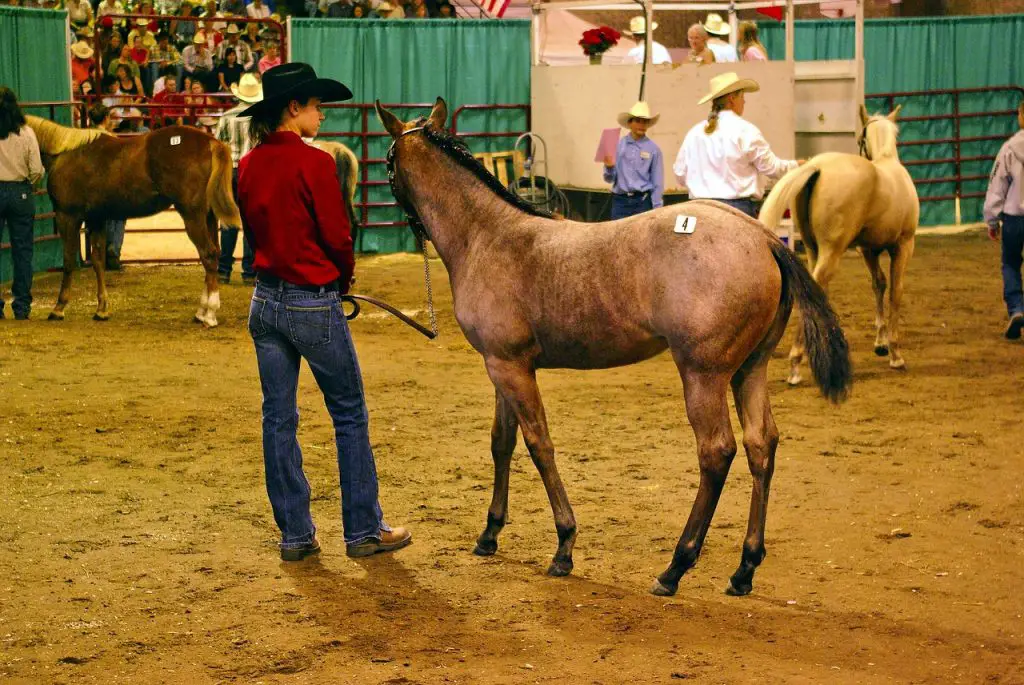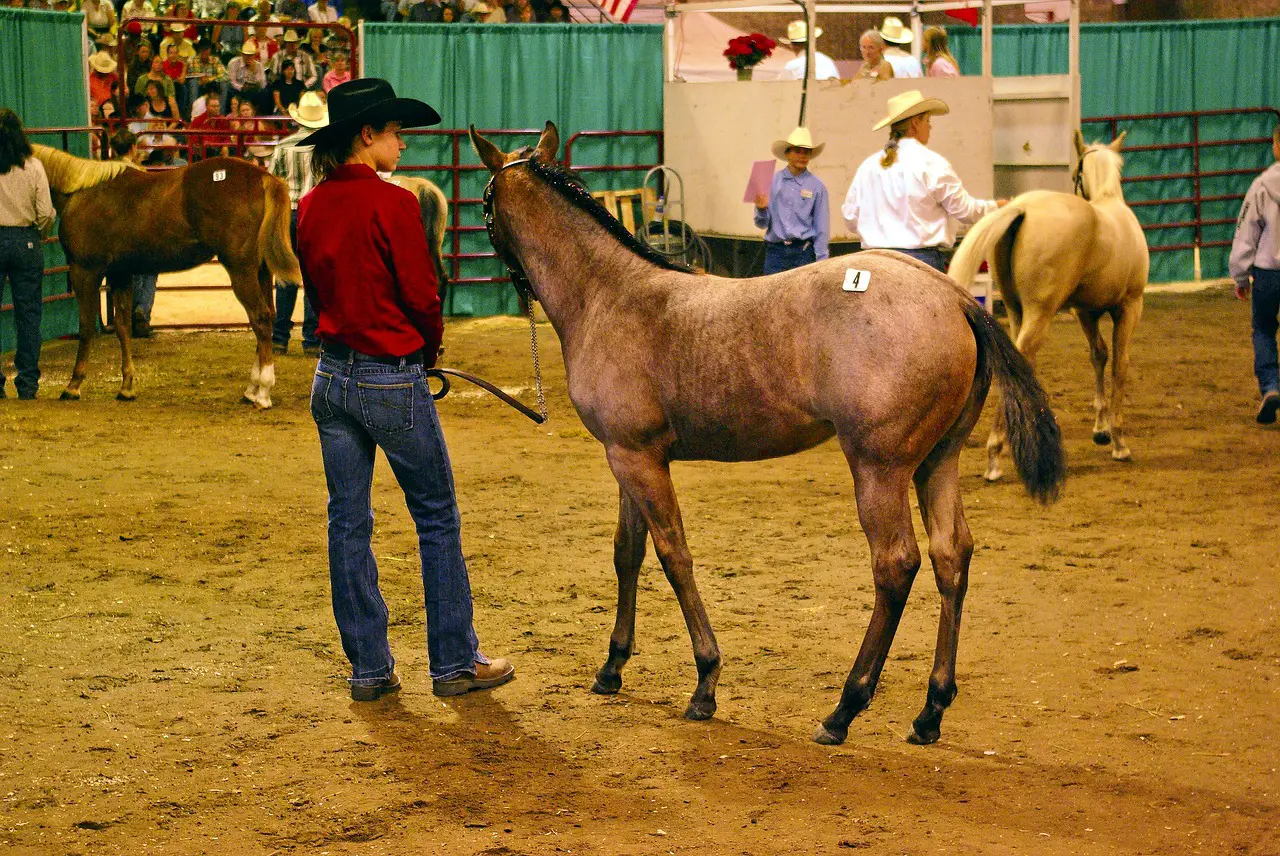Last Updated on February 19, 2022 by Allison Price
You have made the decision to buy a horse and join the millions of other horse owners. Horses, like all large animals, are highly responsible. Horses are now living longer and more productive lives due to improvements in nutrition, health care, and other factors. Horses can live well into their 30s and 40s. Consider whether you are willing to make a lifetime commitment to your horse, or to ensure it is properly cared for if you can no longer afford it. You must ask many questions before you decide on the horse that is right for you.
* Which type of horse is best suited for your needs?
* Where can I buy a horse?
* What are the daily needs for the horse?
* What equipment/supplies will I need in order to get started?
* What are the expected expenses of owning a horse
Horse ownership can be expensive. Before purchasing a horse, you should consider the cost of shelter, feed and veterinary care. Parents should evaluate their child’s ability to commit to buying a horse for their children before purchasing one. To determine if the child is willing to take care of the horse, it would be a good idea to make arrangements with a stable to give riding lessons. You can also lease a horse or participate in 4-H, Future Farmers of America (FFA), and the United States Pony Clubs, Inc.

Choosing the Right Horse for the Job
You can choose to ride horses for show or to just enjoy the trails. But, it is important to consider what type of riding you want to do. There are many styles of riding. After determining this factor, you should choose a horse that has been trained or “schooled” for the type of riding. You should also ensure that the horse has received the appropriate training based on your riding experience. Understanding your riding abilities and limitations will help you choose the horse that suits you best. A horse with the skills and experience you want is a better choice for someone who is a beginner or a younger rider.
Consider that the horse’s value can be attributed to its pedigree, “conformation” and ability to perform desired tasks. A horse’s pedigree is a sign of selective breeding to obtain desired traits. If the desired trait or performance is important to you, expect to pay more. Certain physical traits are also important for show or use. Horses with desirable conformation can be expected to cost more. The ability of a horse to perform the desired tasks (its training, behavior and pedigree) is more important than its conformation or pedigree. You will pay more to have a horse trained to perform a task, than if you need to train it to do so.
Where to Find the Perfect Horse
There are many options available to find a horse for purchase. There are two ways to buy a horse: through a private contract or at public auction. Each option has its pros and cons. No matter how you decide to buy your horse, it is important that you are accompanied by an experienced horseperson. You can both evaluate the horse together in different actions, such as loading the horse, riding, and standing in the pasture. A horse sale will involve at least three people. The buyer, seller and horse are the primary parties. In some cases, however, there may be additional parties. These could include an agent for either the buyer or the seller, a trainer and other advisors.
There are many resources to help you find the right horse for you. The stable where you intend to ride or board is a good place to start. Riding instructors are often able to help you find the horse that is best suited for your riding style. Because they want their animals to be in good enviroments, breeders can also be a resource. Nearly every horse breed has a registered association that can help you find a breeder near you. A good place to start your search for horses for sale is the local newspaper or bulletin board. You don’t have much information about the seller, and you may not be able to get your money back if the purchase isn’t satisfactory. Although horses can also be purchased online, it is impossible to inspect the horse’s condition or handle the horse. Do not buy a horse without seeing it. Video does not replace direct contact.
Do not skip the Pre-Purchase Examination
Horse ownership can be an expensive investment of time, money, and emotions. Horses rarely come with a money back guarantee. It is vital to examine the horse’s health and condition before you make a purchase. This can be done by an equine vet. Depending on the purpose of the horse’s examination and the veterinarian performing it, purchase examinations can vary. These guidelines are provided by the American Association of Equine Practitioners (AAEP). They will ensure a customized exam.
- A veterinarian who is knowledgeable about the breed, sport, or purpose for which the horse is being bought is a good choice.
- Do not trust a veterinarian with horses or owners.
- Your veterinarian should be informed about your goals and expectations for your horse.
- Ask your veterinarian for details about the procedures you feel should be part of the exam.
- These procedures will cost you.
- Participate in the purchase exam. You should also attend the purchase exam with your agent or seller.
- Talk to your veterinarian privately about the results.
- Ask questions and request additional information in private about the findings of your veterinarian.
The veterinarian’s job does not include failing to save an animal. It is not to make a sale, but to give you information about any medical conditions. People who are interested in purchasing horses often hear phrases like “guaranteed sound”, “I’ll buy you back if he doesn’t like you” or “money back guarantee.” You should also ask the seller whether they will allow a 30-day grace period before the sale is final. To facilitate the sale, this will usually eliminate the need to ask the seller if the horse was given any sedatives or pain relievers during the pre-purchase exam.
Ask your veterinarian for more information on purchase examinations. The AAEP has a brochure called “Purchase Exams – A Sound Economic Investment”. Additional information can be found on the AAEP Web site, www.aaep.org/horseowner.
What will my horse need?
There are many management methods available when it comes to caring for a horse. The first decision that must be made as a potential horse owner is where to place the horse. Many people have the option to provide housing for their horses on their land. There are many benefits to having your horse housed on-site. However, it is more difficult to care for and maintain the horse when it is on your property. You should consider this when deciding whether to board your horse at a stable or boarding facility that can feed and watch the horse on a daily basis. Before you decide to keep your horse at home, make sure to consult the local zoning authorities. A stable facility can offer a range of services that will help your horse. These facilities offer the opportunity to interact with other horse owners and organize activities for those who board horses.
What Do I Need To Get Started?
The equipment required will depend on how and where the horse is kept. These factors will impact the daily operation costs. This can include feed, vet care, and farrier services.
What You Need to Know About Horse Ownership
Before purchasing a horse, potential owners need to be aware of all the costs associated with ownership. Due to the nature of the horse’s use and how it is managed, these costs can vary. Here are some examples of expected costs:
- Grain/feed
- Hay/forage
- Pasture/turnout
- Minerals and salts, as well as other supplements
- Farrier service (required every 6-8 weeks).
- Veterinary care
- Utilities
- Supplies & Tack
- Bedding
- Insurance
- Riding lessons
- Purchase of truck/trailer or availability
Depending on whether the horse is housed on your property, additional costs such as boarding may be added to the cost of horse ownership. If you plan on taking the horse along to horse shows or trail rides, it is worth considering boarding costs. These fees must be included with any breeding costs, if the horse is to be used as a breeding animal in the future.
Take a Ride
Horse ownership is a hobby for many people. The horse’s lifespan has been extended to their 30s by advances in equine medicine. However, this is often far beyond their athletic ability. Be a responsible horse owner, and plan for your horse’s retirement.
You should plan to have an emergency fund in case of unexpected injuries or illnesses. Remember that horses are living beings and your life and welfare are yours.



